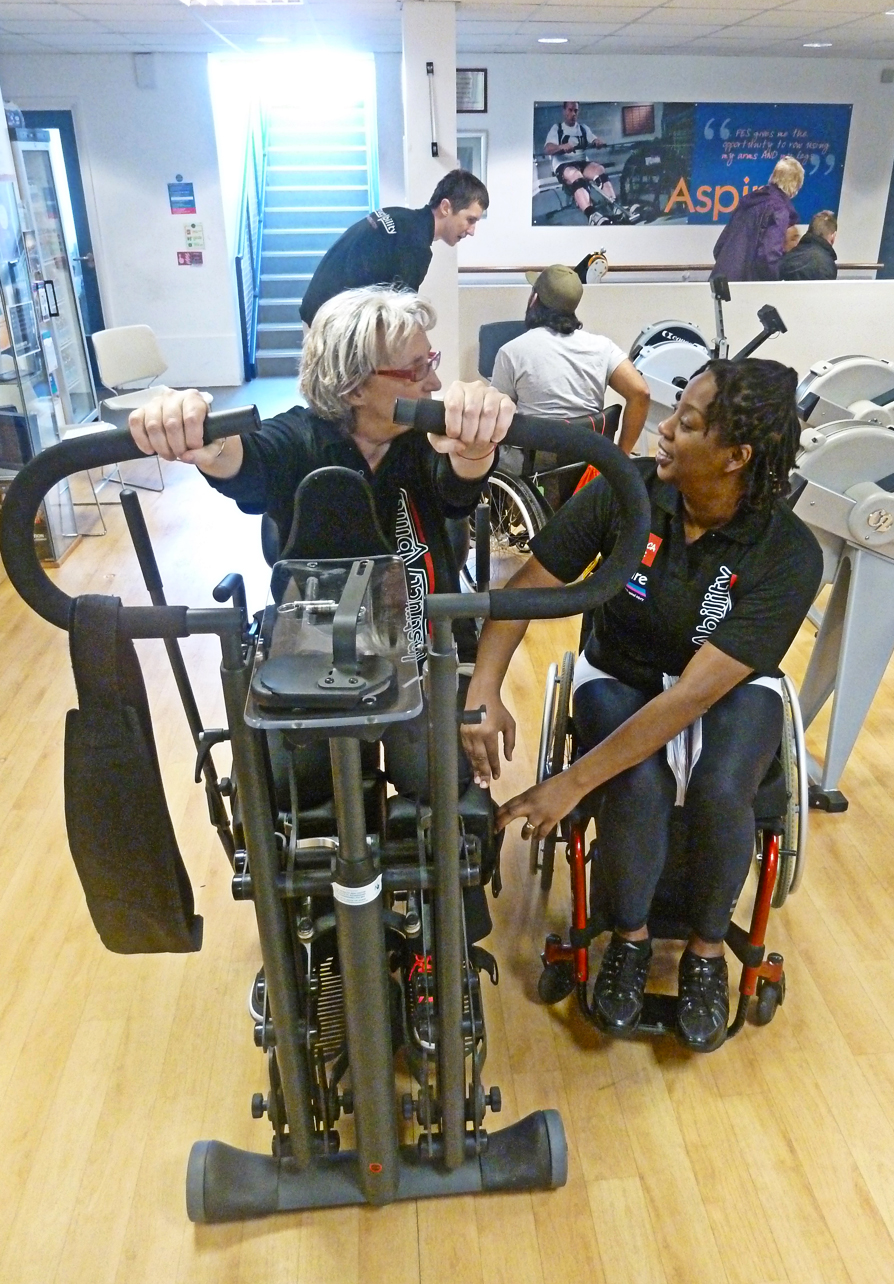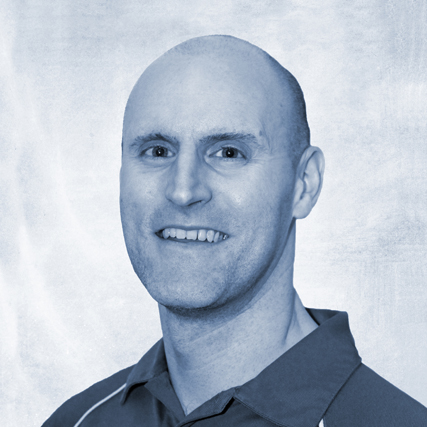



SELECTED
ISSUE
|
|
Leisure Management - Are PTs underskilled?

Talking point

|
|
| Are PTs underskilled?
|

Personal trainers play a key role in the gym environment, helping members to achieve their fitness goals. But are the current training models allowing them to do this in the best possible way? Or could they be doing more? We ask our panel of experts
|


Mental health is now seen as an important part of overall wellbeing. Should PTs be trained to assist clients in this area? PHOTO: SHUTTERSTOCK.COM
|
|
|
Personal trainers learn about anatomy, physiology, health, fitness and exercise instruction inside out. By the time they’ve finished training, they can complete a PARQ, create a programme that will hone and tone a client and take injuries and contraindications into consideration.
But as the Government encourages more people to exercise, so clients’ needs become more diverse, complicated and challenging, leaving skill-gaps that could mean great trainers aren’t enjoying the career they’d hoped for.
Is it time to step PT training up a gear? We ask our panel what could be added to the mix
|
Jenny Patrickson
ActiveIQ

Jenny Patrickson
Research shows that one in every four people now experiences a mental health problem at some point in their lifetime. PTs are highly likely to encounter people with mental health issues because physical activity is often prescribed to help ease symptoms. Being alert to how they can help is a key skill fitness professionals often lack.
"General awareness of mental health is growing but, in order to effect change, PTs must be upskilled to recognise mental health problems and trained in how best to help"
General awareness of mental health issues is growing but, in order to affect change, PTs must be upskilled to recognise mental health problems and trained in how best to help. Our industry already knows there’s a strong link between exercise and improved mental health; it’s our responsibility to make a difference.
With this in mind, ActiveIQ created our new mental health qualification to equip learners with skills to identify common mental health disorders, to help reduce stigma and discrimination and encourage people to talk. By offering the Level 2 Award in Mental Health Awareness at entry level we hope to enable everyone from new learners to experienced trainers to recognise and tackle the issue of mental health and upskill with this qualification so they can support clients and communities where such help is needed.
John Byers
REPs

John Byers
With demographics in the UK changing, fitness professionals will be increasingly challenged to become experts in managing clients’ co-morbidities. As a result, personal trainers will be required to have an understanding of areas such as medical conditions, ethnic background and gender, as well as mental health problems, which are a growing public health concern, to effectively support their clients.
Currently, national standards that underpin PT qualifications don’t provide enough skills to meet the demands fitness professionals now need to support an ever-more diverse client base towards long-term health and fitness habits.
Providing PTs with the knowledge and awareness of these important skills through quality assured CPD will be essential for the industry. Going forwards, soft skills should be embedded within the PT qualifications. Continuing professional development (CPD) must be pushed much harder to plug the skills gap, and existing barriers like time and cost must be addressed.
Hilary Farmiloe
InstructAbility

Hilary Farmiloe
Working with disabled people has traditionally been seen as a specialism, whereby fitness professionals undertook extra modules to learn about impairments and how to adapt exercises. The problem with this is that disabled people frequently tell us they’re turned away from gyms because nobody with the right qualification was on site that day.
"As the health care sector becomes increasingly aware of the role physical activity can play, more people are presenting with ill health and chronic conditions"
We believe education around working with disabled people who don’t have high risk medical conditions should be part of core training. We need instructors with the knowledge and confidence to work with disabled people in the same way they work with every other client. Trainers should be able to find the most appropriate way to support each client. After all, each individual comes with their own level of ability and fitness.
We’re working with CIMSPA to make sure future professional standards provide appropriate training. It’s not about rewriting the content, simply ensuring that whatever a fitness professional learns, it’s equally applied to working with disabled people. Knowledge about specific impairments should be included from the outset of training – the key is to acquire a foundation of understanding that can be built upon.

PTs need to learn how to work with people with disabilities
Ian Davis
Wellington Health & Fitness Club

Ian Davis
With the majority of our members aged over 50, and 136 aged between 80 and 95, providing appropriate services is a key focus. There are consequences to having numerous older members, purely because of their age and physical attributes. Some aren’t very mobile, others have varying degrees of dementia, some struggle to get on to kit or to remember which piece to use next.
"We owe them, as well as our other members and staff, a duty of care; with that duty comes a need for specific training"
We owe them a duty of care; with that duty comes a need for specific training. But no formal training or qualifications exists as part of initial training or as a CPD module, which leaves us faced with a glaring skills gap.
Our club provides a true lifeline for many of our older members. We can’t take that away from them, but providing a safe environment puts a huge onus on our staff. They need specific training in order to recognise, assist and understand the requirements of more elderly members; support that enables them to engage more proactively and constructively, to ensure the member has a safe and beneficial gym visit. At present this training is not available.

There is currently no formal training for PTs on how to train older clients PHOTO: SHUTTERSTOCK.COM
Paul Swainson
Future Fit Training

Paul Swainson
Currently, the training that fitness professionals undergo lacks behaviour change coaching skills.
As the health care sector becomes increasingly aware of the role that physical activity can play, more people are presenting with ill health and chronic conditions. But all the exercise, fitness and nutrition knowledge in the world is redundant if PTs don’t understand how to effectively coach people towards new habits.
Future Fit Training has created a CIMSPA-accredited system that allows PTs to access further training that meets CPD requirements.
Known as the Pro Zone, we’ve collaborated with experts in niche fields, so members learn from experts.
The platform has content in four categories – training, nutrition, coaching and business. The first two take traditional technical knowledge and skills to an advanced level, with presentations on, for example, injury prevention and physiological conditions that impact weight loss. The latter two address skills gaps, with topics such as how to motivate clients, and effective marketing strategies.
Ashraf Islam
The Gym Group

Ashraf Islam
The Gym Group’s PT Academy came into being because we felt lots of newly-qualified PTs needed the confidence and soft skills that come with experience and maturity: the ability to engage with people at any level, to empathise and gain trust.
We partnered with Lifetime to create a bespoke 12-month PT qualification, which includes core modules around engaging customers and soft skills as well as nutrition, strength and conditioning to ensure all the PTs we employ have advanced skills.
To cement learning, we’ve added work experience in our gyms at the end of the course, ensuring learners can put training into practice in a live environment. Participants receive a Level 3 Diploma, a guaranteed interview with The Gym Group, end-to-end support and a year’s free gym membership. I think all training providers should be adding options like this as standard to enhance the development of all newly qualified PTs.

PTs need the ability to engage with people at any level PHOTO: SHUTTERSTOCK.COM
Getting commercial
The fibodo app has partnered with Fitpro to create a free course for PTs in business management, as Megan Sowney explains...

Megan Sowney
There are excellent training courses and degrees running across the UK, but many ignore one vital skill that every PT can benefit from: how to run a successful business and forge a rewarding, lucrative career out of keeping people physically active.
For newly-qualified PTs and sports coaches, knowing how to promote themselves and build a sustainable client-base is essential. They need an understanding of practical business skills to achieve that.
To address this skills gap we’ve partnered with FitPro to create a CIMSPA-accredited e-learning course, which is worth three CPD points.
Called ‘Grow Your Coaching Business’, it equips PTs and coaches with the business skills needed to sell their time, giving learners an understanding of what consumers want, and how they can attract and retain clients using technology. The course is free to FitPro members.
It teaches business essentials in relation to attracting clients, maximising earnings, insurance and consumer trends. It also covers essentials such as using Facebook, Instagram, Trustpilot and Hootsuite. Plus, it teaches PTs how to use the fibodo booking management platform, so they can benefit from customisable apps and web pages to get booked and paid 24/7, and grow their business.
We’re passionate about empowering PTs with the skills, knowledge and tools they need to achieve a successful business and until we teach business skills as standard, our industry will continue to lose great fitness professionals.
Megan Sowerby is commercial manager at fibodo

PTs can learn vital business skills
|
|
 |
| Originally published in Health Club Management 2019 issue 9
|
|
 |
|
